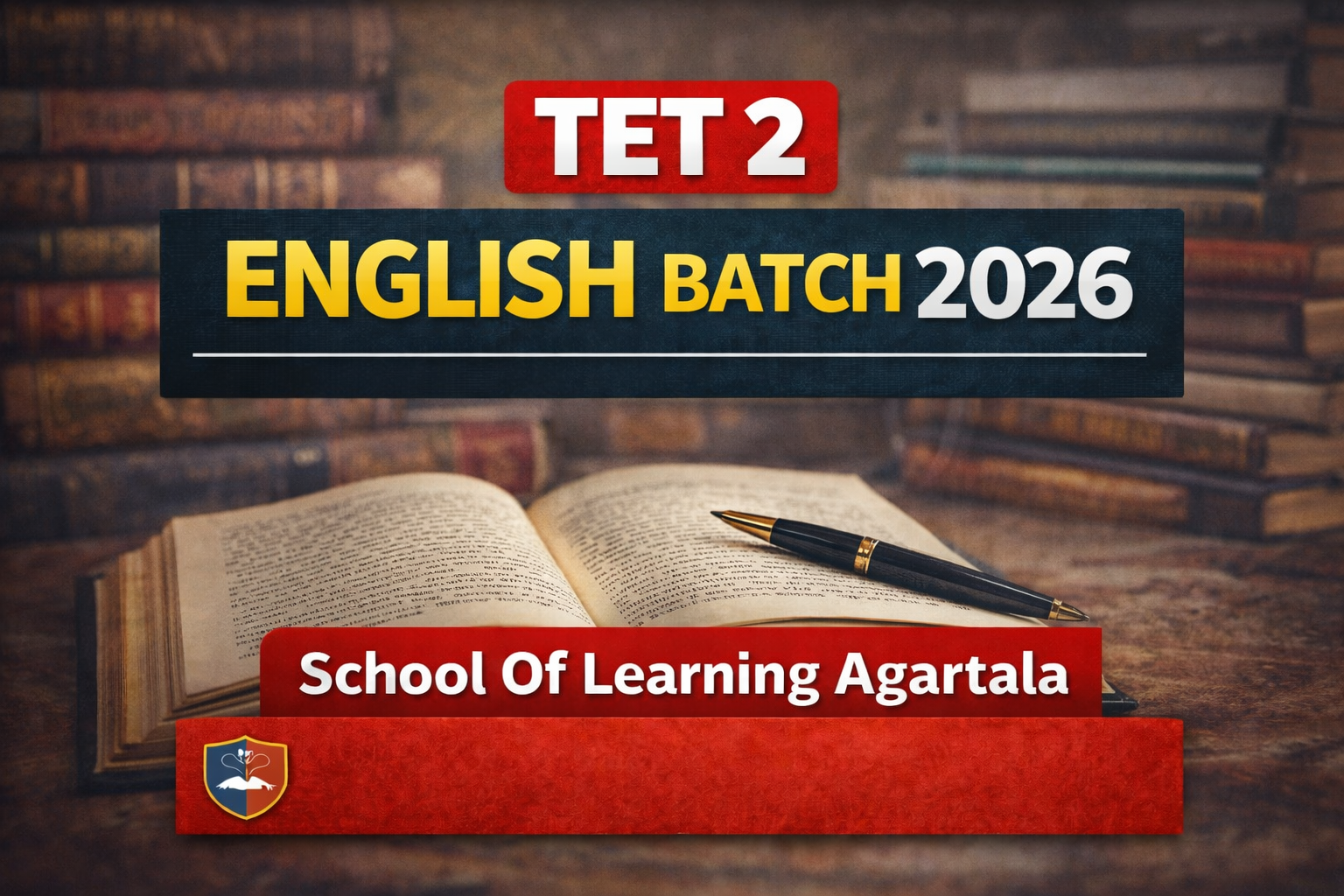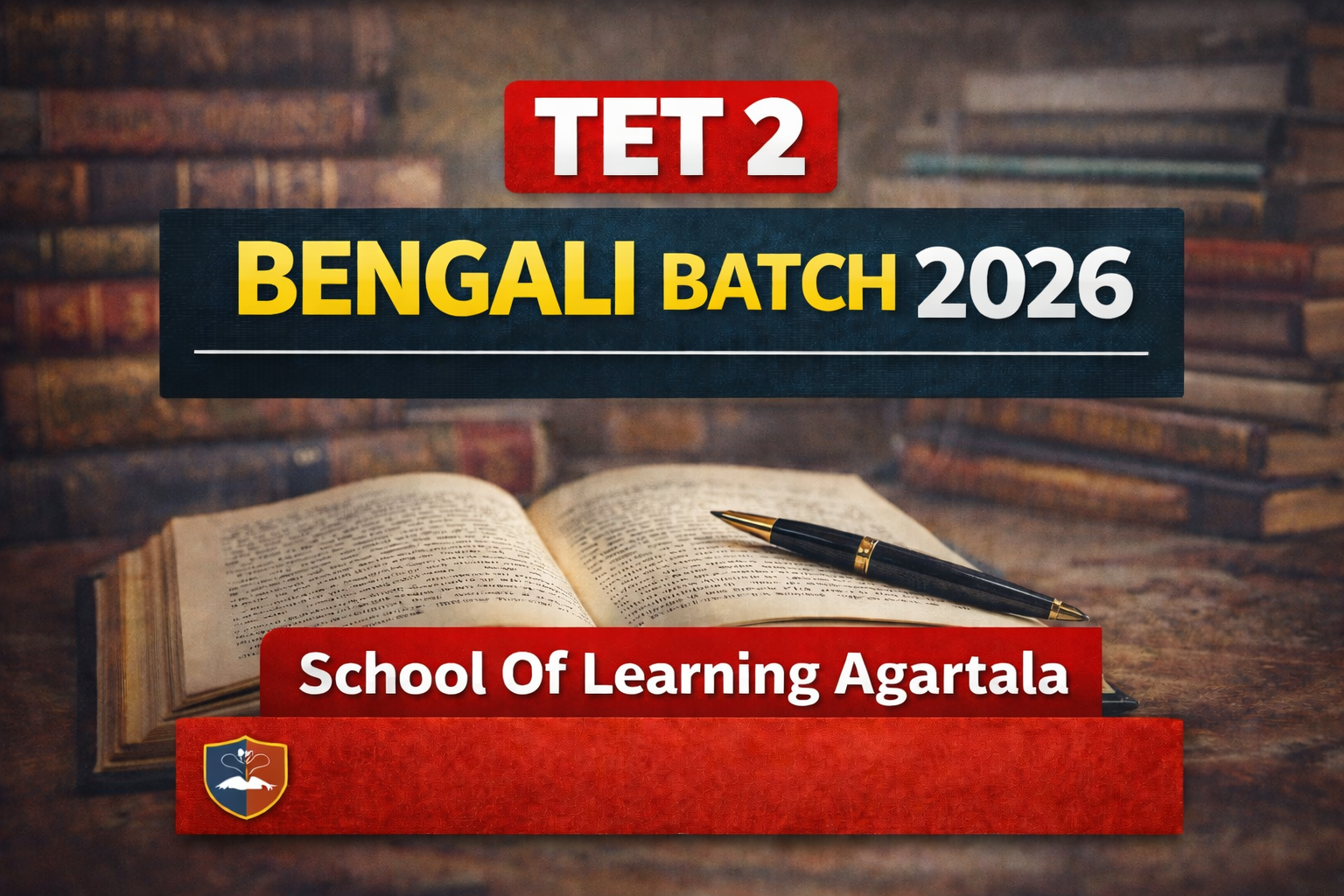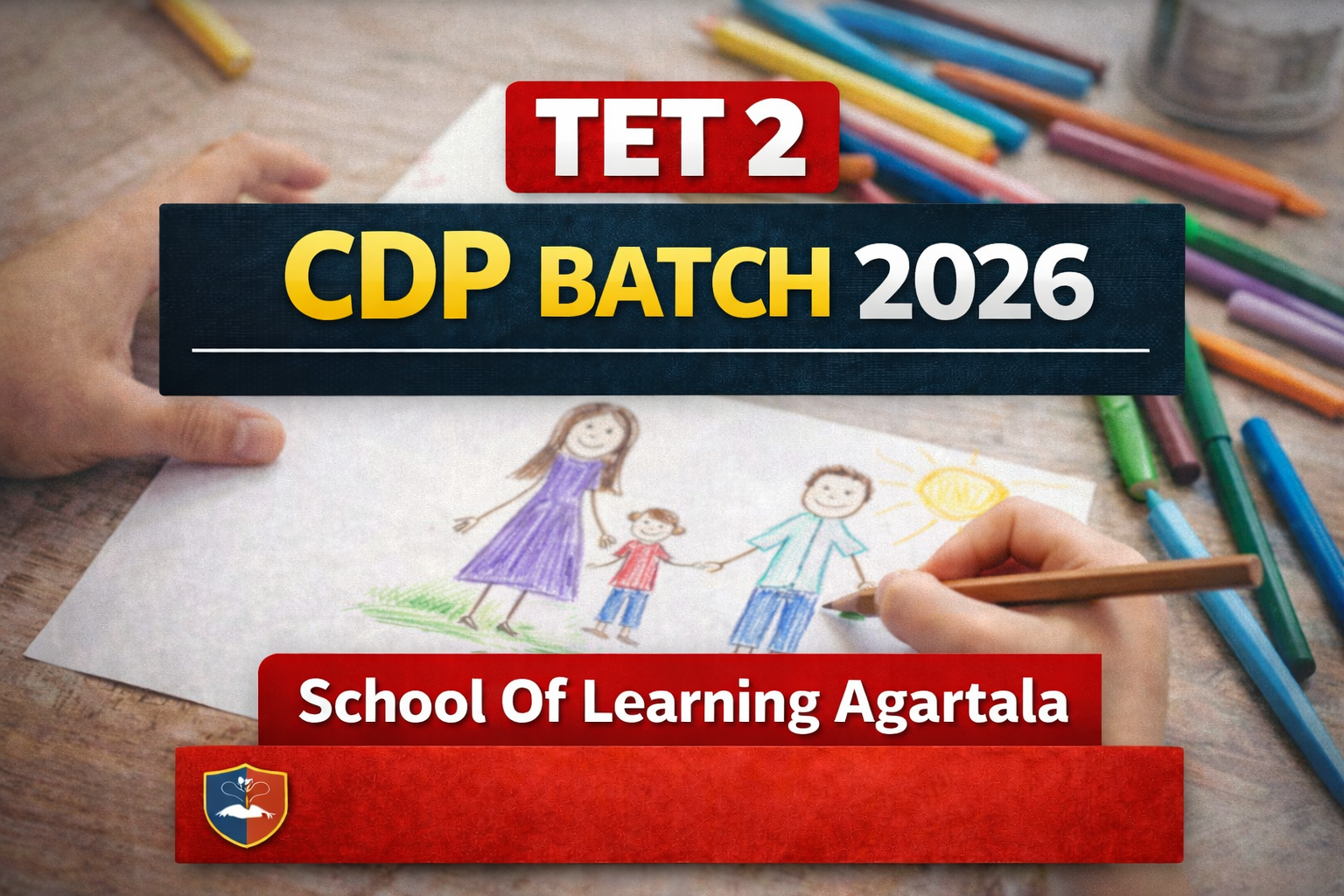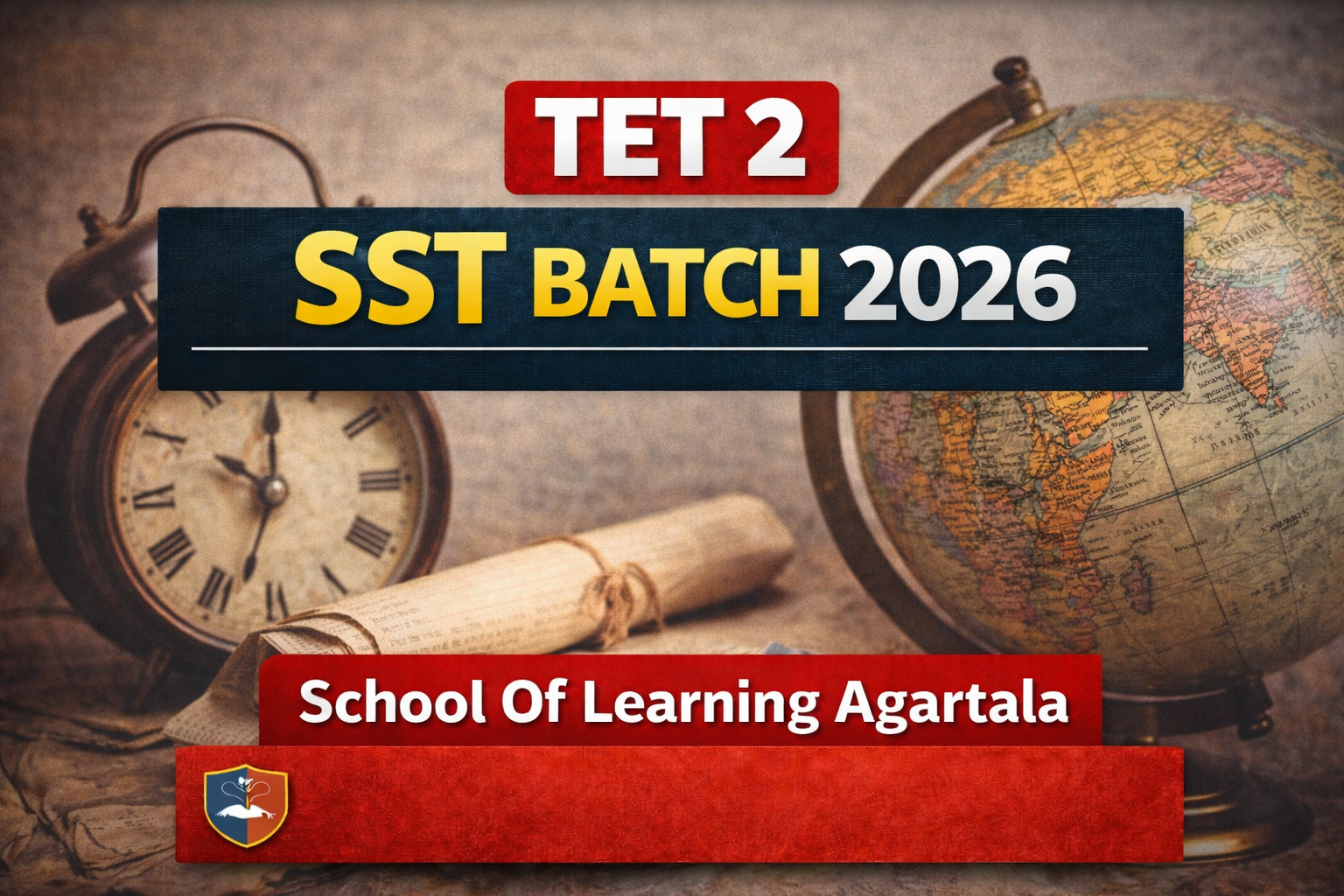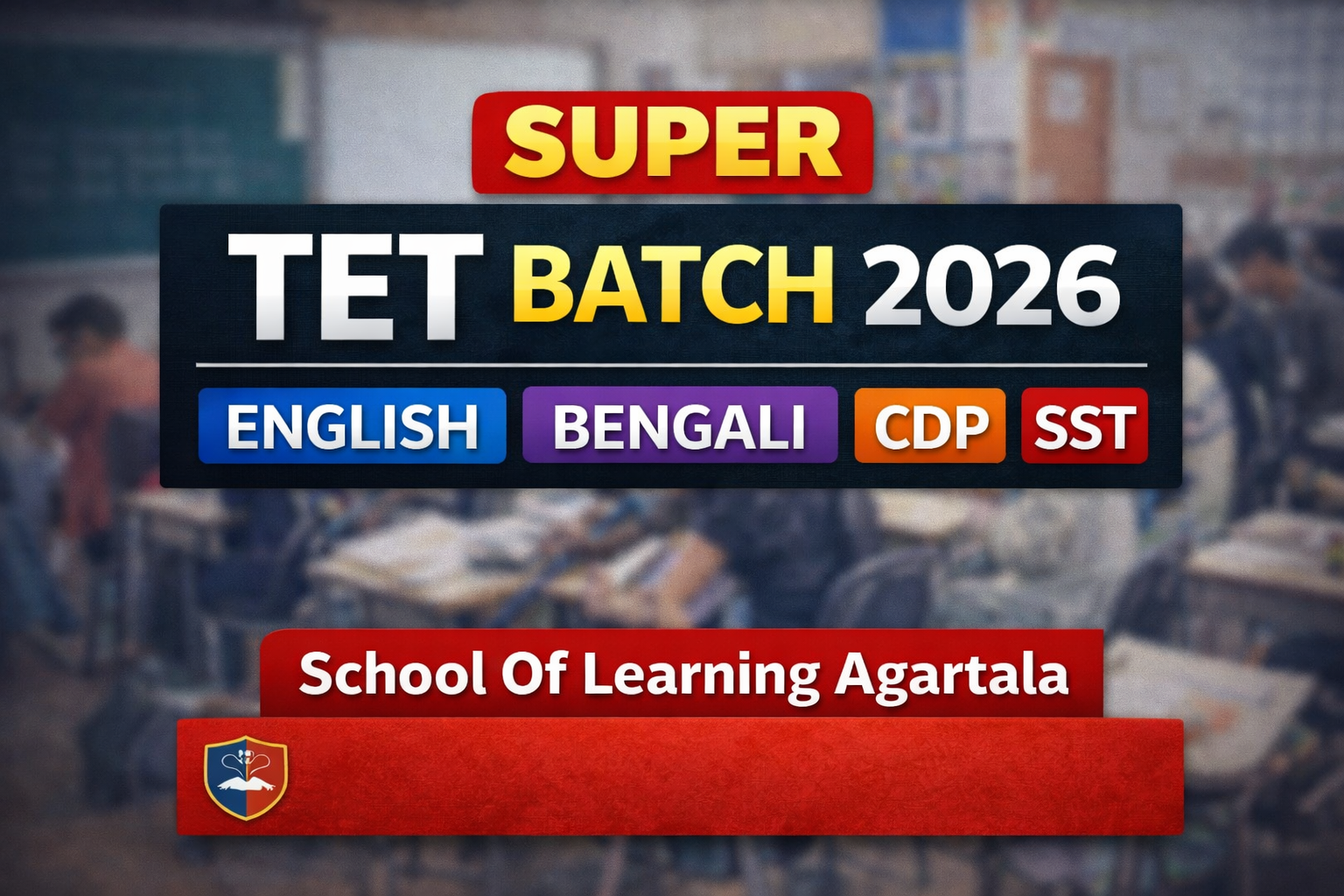- Home
- About Us
- Blog
- Contact Us
- DEFENCE
- TRIPURA JRBT
- ENTRANCE TEST
- Class XI PCB
- Class XII PCB
- Class XII PCMB
- Class IX Science Group
- Class X Science Group
- Class IX Arts
- Class X Arts
- TPSC
- Tripura Fire Service Exam
- STPGT
- STGT
- Tripura TET 1
- TRIPURA TET 2
- Jail Exam
-
 Online Store
Online Store - Free Recorded Video
- Free Study Material
- Free Quiz
Courses Details
SOCIOLOGY STPGT 1
STPGT Sociology Syllabus
Unit I: Foundations of Sociology
-
Development of Sociology
-
Evolution of Sociology as an academic discipline
-
Major sociological perspectives
-
Scientific nature, scope, and significance of Sociology
-
-
Core Sociological Concepts
-
Key terms: Society, Community, Association, Institution, Organization
-
Social constructs: Status and Role, Culture, Norms, and Values
-
Socialization processes; Conformity and Deviance
-
Ethnicity, Race, Sex, and Gender
-
-
Social Control
-
Meaning, types, and agencies
-
Importance in maintaining social order
-
-
Social Change
-
Concept, forms, and influencing factors
-
Key theories of social change
-
Role of liberalization and globalization
-
-
Social Stratification and Mobility
-
Concepts and theoretical perspectives
-
Forms of stratification: caste, class, and gender
-
Patterns and dimensions of social mobility
-
-
Sociology of Religion
-
Sociological perspectives on religion and its role in society
-
-
Social Groups
-
Definition, classification, and significance in social life
-
Unit II: Classical Sociological Thought
-
Auguste Comte
-
Law of three stages
-
Positivism
-
Concepts of social statics and dynamics
-
Hierarchy of sciences
-
-
Herbert Spencer
-
Theory of organic analogy
-
Social evolution
-
-
Émile Durkheim
-
Concept of social facts
-
Division of labour
-
Study of suicide
-
Religion and social cohesion
-
-
Karl Marx
-
Dialectical and historical materialism
-
Base-superstructure model
-
Class struggle, alienation, and revolution
-
-
Max Weber
-
Methodological individualism
-
Social action theory
-
Authority and bureaucracy
-
Protestant ethic and capitalism
-
-
Vilfredo Pareto
-
Theory of residues and derivations
-
Concept of elite circulation
-
Unit III: Sociological Theories
-
Nature and Role of Sociological Theory
-
Differences between macro and micro approaches
-
-
Functionalist Perspective
-
Basic assumptions
-
Contributions of Talcott Parsons and Robert K. Merton
-
-
Conflict Theory
-
Core principles
-
Ideas of Ralf Dahrendorf and Lewis A. Coser
-
-
Interactionist Perspective
-
Key propositions
-
Symbolic interactionism by G. H. Mead and H. Blumer
-
Unit IV: Research Methodology in Sociology
-
Social Research and Survey
-
Definitions, characteristics, and types
-
Relevance and stages of research formulation and reporting
-
-
Hypothesis Formulation
-
Concept and role in research
-
-
Research Design
-
Meaning, purpose, and stages
-
Distinctions between quantitative and qualitative research design
-
-
Sampling Methods
-
Types and procedures
-
-
Data Collection Techniques
-
Tools and methods used in sociological studies
-
Unit V: Indian Society and Culture
-
Historical Background
-
Society in pre-British India
-
Effects of British rule on Indian society
-
-
Emergence of Indian Sociology
-
Perspectives: Indological, Historical-Dialectical, Subaltern
-
-
Indian Social Institutions
-
Family: Structure, functions, and transitions
-
Marriage: Forms, roles, and changes
-
Kinship: Definitions, types, descent rules, customs
-
-
Processes of Social Change in India
-
Sanskritization, Westernization, Modernization, Secularization
-
Introduction of local self-governance and land reforms
-
-
Caste and Tribe
-
Definitions, features, and evolving perspectives
-
-
Rural and Urban Dynamics
-
Characteristics and emerging challenges of Indian rural and urban societies
-
-
Social Problems in India
-
Demographic and Economic Issues: Population explosion, poverty, illiteracy, unemployment
-
Political and Security Issues: Communalism, regionalism, terrorism, insurgency
-
Administrative and Environmental Issues: Corruption, pollution, environmental degradation
-
Issues of Weaker Sections: SCs, STs, OBCs, minorities, children
-
Gender Justice: Women's rights and related concerns
-
WE ENHANCE YOUR TALENT
Our Syllabus

Subject : SOCIOLOGY
SOCIOLOGY SYLLABUS
WE ENHANCE YOUR TALENT
Recommended Courses



.png)





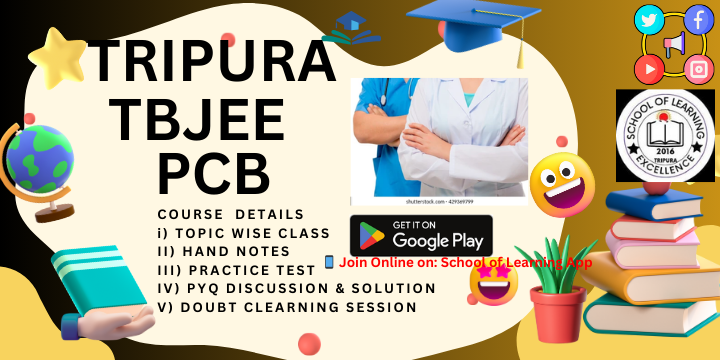





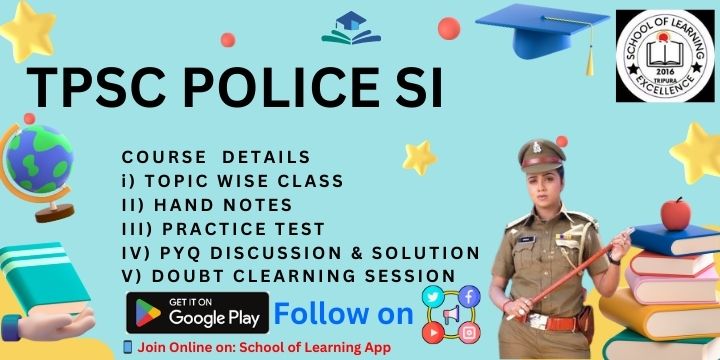

.jpg)

.jpg)
.jpg)

.jpg)


.png)

.png)
.png)
.png)
.png)
.png)
.png)
.png)
.png)
.png)
.png)
.png)
.png)







